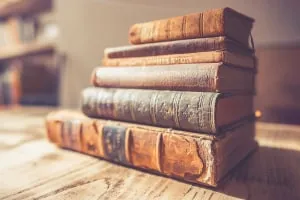
Writing for Young Readers: Opening the Treasure Chest 
This course is designed for aspiring authors with a passion for writing for young readers. Students will explore the world of children's literature, unlocking the secrets of writing for this unique audience. ▼
ADVERTISEMENT
Course Feature
![]() Cost:
Cost:
Free
![]() Provider:
Provider:
Coursera
![]() Certificate:
Certificate:
No Information
![]() Language:
Language:
English
![]() Start Date:
Start Date:
Self Paced
Course Overview
❗The content presented here is sourced directly from Coursera platform. For comprehensive course details, including enrollment information, simply click on the 'Go to class' link on our website.
Updated in [March 06th, 2023]
Writing for Young Readers: Opening the Treasure Chest is an online course designed to help aspiring writers create stories for young readers. The course covers topics such as introduction to writing identity, writing life, culture and story, cultural myths and legends, viewpoint, and interviews with Uma Krishnaswami and Apirana Taylor. Participants will gain insight into the writing process and learn how to craft stories that capture the imagination of young readers. The course will also provide an opportunity to explore the power of language and the importance of place in storytelling. At the end of the course, participants will have a better understanding of their writing identity and the tools to create stories that will captivate young readers.
[Applications]
The application of this course, Writing for Young Readers: Opening the Treasure Chest, can be seen in the development of writing skills for young readers. Participants can use the knowledge gained from the course to create stories that are culturally relevant and meaningful to young readers. They can also use the interviews with Uma Krishnaswami and Apirana Taylor to gain insight into the writing process and the importance of storytelling. Additionally, participants can use the module summary to reflect on their writing identity and how it can be used to create stories that are engaging and meaningful.
[Career Paths]
1. Children's Book Author: Children's book authors create stories and illustrations for young readers. They must be able to craft engaging stories that capture the imagination of their audience. As technology advances, children's book authors are increasingly using digital platforms to create and distribute their work.
2. Children's Book Editor: Children's book editors are responsible for ensuring that the content of a book is appropriate for its intended audience. They review manuscripts, provide feedback to authors, and work with publishers to ensure that the final product meets the standards of the publishing house.
3. Children's Book Illustrator: Children's book illustrators create the artwork that accompanies the text of a book. They must be able to create illustrations that capture the tone and mood of the story, as well as the imagination of the reader. As technology advances, children's book illustrators are increasingly using digital platforms to create and distribute their work.
4. Children's Book Publisher: Children's book publishers are responsible for the production and distribution of books for young readers. They must be able to identify and acquire manuscripts, manage the production process, and market the book to its intended audience. As technology advances, children's book publishers are increasingly using digital platforms to create and distribute their work.
[Education Paths]
1. Bachelor of Arts in Creative Writing: This degree path focuses on developing the skills necessary to write creatively for a variety of audiences. Students will learn how to craft stories, create characters, and develop plotlines. They will also learn how to write for different age groups, including young readers. This degree path is becoming increasingly popular as more people recognize the importance of creative writing in the modern world.
2. Master of Arts in Children’s Literature: This degree path focuses on the study of literature written for children. Students will learn about the history of children’s literature, the different genres, and the various themes and topics explored in these works. They will also learn how to analyze and evaluate children’s literature, as well as how to create their own works for young readers. This degree path is becoming increasingly popular as more people recognize the importance of children’s literature in the modern world.
3. Doctor of Philosophy in Writing for Young Readers: This degree path focuses on the study of writing for young readers. Students will learn about the history of writing for young readers, the different genres, and the various themes and topics explored in these works. They will also learn how to analyze and evaluate writing for young readers, as well as how to create their own works for young readers. This degree path is becoming increasingly popular as more people recognize the importance of writing for young readers in the modern world.
4. Master of Fine Arts in Writing for Young Readers: This degree path focuses on the study of writing for young readers. Students will learn about the history of writing for young readers, the different genres, and the various themes and topics explored in these works. They will also learn how to analyze and evaluate writing for young readers, as well as how to create their own works for young readers. This degree path is becoming increasingly popular as more people recognize the importance of writing for young readers in the modern world.
Course Syllabus
Introduction to Genre, Form, and Audience
Genre - Part One
Genre - Part Two
Form - Part One
Form - Part Two
Audience - Part One
Audience - Part Two
Interview with Finegan Kruckemeyer - Part One: 'it can be nice to write just for the sake of writing'
Interview with Finegan Kruckemeyer - Part Two: 'my favourite authors have permeated my brain'
Interview with Finegan Kruckemeyer - Part Three: 'it truly is a magical feeling'
Module Summary Genre, Form, and Audience
Course Provider

Provider Coursera's Stats at AZClass
Discussion and Reviews
0.0 (Based on 0 reviews)
Explore Similar Online Courses

Photoshop Advanced manipulation add & remove text objects

Create & Sell A Digital Product: From Beginner To Expert

Python for Informatics: Exploring Information

Social Network Analysis

Introduction to Systematic Review and Meta-Analysis

The Analytics Edge

DCO042 - Python For Informatics

Causal Diagrams: Draw Your Assumptions Before Your Conclusions

Whole genome sequencing of bacterial genomes - tools and applications

Write a Killer Literature Review

Advanced Diploma in World Literature

English Literature: Be as Informed as a Literature Graduate
 Related Categories
Related Categories
 Popular Providers
Popular Providers
Quiz
 Submitted Sucessfully
Submitted Sucessfully
1. What is the title of the course?
2. What is the first module of the course?
3. Which part of the interview with Uma Krishnaswami talks about the story?


Start your review of Writing for Young Readers: Opening the Treasure Chest